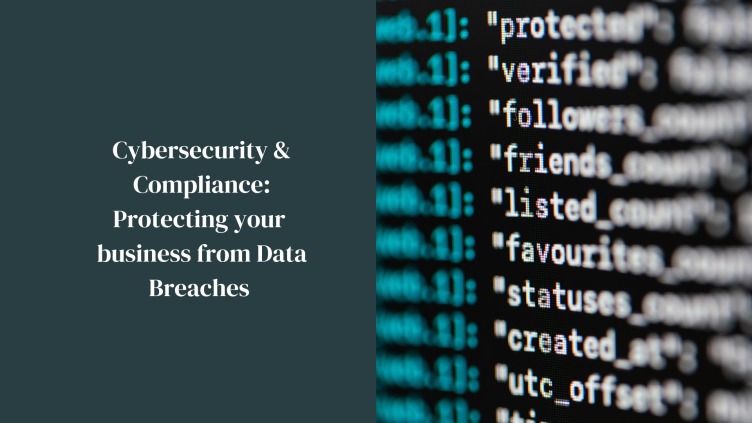Cybersecurity and Compliance: Protecting Your Business from Data Breaches
Cybersecurity refers to protecting computer systems, networks, and electronic devices from unauthorized access, theft, or damage. Conversely, compliance refers to following rules, regulations, and industry standards that govern data privacy and security.
Compliance with cybersecurity standards has become critical in assessing an organization’s capacity to secure data, avoid financial fines, create customer confidence, and promote a security culture. According to an article in Economic Times the Covid-19 pandemic-related remote working resulted in a 75% increase in daily cybercrime, affected 55% of data exfiltration, 51% of phishing emails, and 35% of ransomware assaults.
Benefits of Cybersecurity Compliance
To apply a systematic risk governance strategy and rule out any vulnerability that may harm the firm, consumers, and stakeholders, cybersecurity compliance entails aligning an organizational risk management framework with pre-defined security measures. Meeting SOC2, ISO 27001, PCI-DSS, HIPAA, CCPA, and other main regulatory framework data security standards helps your organization discover, interpret, and battle cyber risks and secure your intellectual property, gaining customer trust and loyalty.
The paramount importance of cybersecurity and compliance is as follows-
1. Protecting sensitive data: Cybersecurity measures and compliance regulations are implemented to protect sensitive data such as customer information, financial records, and confidential business data. By implementing effective cybersecurity measures and complying with regulations, businesses can prevent unauthorized access, theft, or damage to this information.
2. Preventing cyber attacks: Cyber attacks can cause significant damage to businesses, including financial losses, loss of critical data, and reputational damage. By implementing effective cybersecurity measures and complying with regulations, businesses can prevent cyber-attacks and minimize the damage caused by successful attacks.
3. Building customer trust: Customers trust businesses that take data privacy and security seriously. By implementing effective cybersecurity measures and complying with regulations, businesses can build trust with their customers and demonstrate their commitment to protecting sensitive data.
4. Meeting legal and regulatory requirements: Compliance regulations are implemented to protect sensitive data and prevent cyber-attacks. Non-compliance can result in hefty fines, legal action, and loss of customer trust. By complying with regulations, businesses can avoid these consequences and operate within the legal framework.
5. Protecting the organization’s reputation: Cybersecurity incidents can damage an organization’s reputation and cause long-term damage. By implementing effective cybersecurity measures and complying with regulations, businesses can minimize the damage caused by cyber incidents and protect their reputation.
In conclusion, cybersecurity and compliance are crucial for businesses and organizations. By implementing effective cybersecurity measures and complying with regulations, businesses can protect sensitive data, prevent cyber-attacks, build customer trust, meet legal and regulatory requirements, and protect their reputation. Businesses must take cybersecurity and compliance seriously and invest the necessary resources to protect their digital assets.


